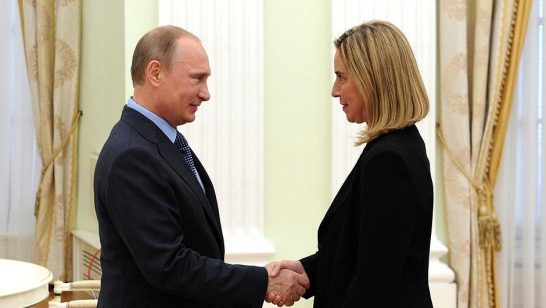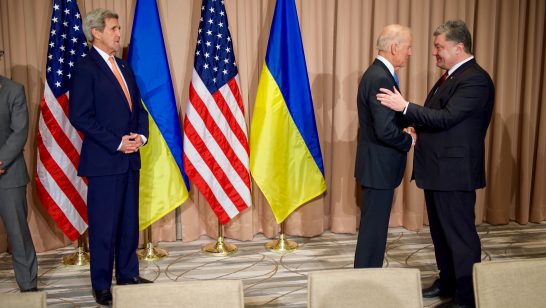
Is this the right moment to re-engage with Russia? To try to answer this question, a realistic assessment of the present situation in Ukraine is needed first and foremost. From that point of view, the future of Ukraine looks bleak to say the least.
On the military side, it is highly unlikely that the Minsk II agreement will lead in the foreseeable future to a genuine and solid ceasefire. At best, one can hope for the decrease in tension on the ground, while recognising at the same time that such a decrease is not entirely sure to be lasting. Regular incidents as we have recently observed around Donetsk bring the permanent risk of a military situation getting out of hand and raise the prospect of a renewed offensive from the separatist side.
With regard to the economic situation, there is little room for optimism in spite of real efforts by the Kyiv government to engage in a genuine effort for reform. But the inner shortcomings of the state administration make the implementation of these reforms somewhat uncertain or at least necessitating many years of patient and solid work.
Lastly, a close scrutiny of Russia’s policy in Ukraine, in particular the constant and substantial financial and military support given to the Donbas militia, drives the point that Moscow is not ready to let the Ukrainian government go ahead on its own. On the contrary, it seems eager to keep a foot in the door in Ukraine if only to prevent any evolution that could jeopardise Russian interests. As long as it is not satisfied with the Kyiv authorities, Moscow will apply its full weight on the events in Donbas and elsewhere in the country with the objective of gaining enough leverage to prevent any move in Ukraine which could undermine its influence.
Faced with such a prospect, what can and should the U.S. and its European allies do? They have the choice between two options: either go for a full-fledged confrontation with Russia or aim for some form of dialogue.
It is clear that Western states have demonstrated so far very little appetite for any sort of direct military involvement in Ukraine, be it weapons deliveries or boots on the ground. Any change of course in that respect will be painful and conducive to long and agonising debates. One reason for such an attitude is that the escalation which would follow is generally deemed to lead nowhere.
Instead, the Western group has preferred so far to stick to a dual track approach essentially composed of sanctions and of possibility of dialogue with Russia. Yet such an outreach to Moscow has been up to now minimalist and still remains a divisive issue among Europeans. Some of them see no reason to engage when Russia is so reluctant to adopt any positive attitude. Why start a dialogue with Moscow when so few openings have been appearing on the Russian side?
Yet such a position runs the risk of giving a permanent nature to the slow burning conflict in Eastern Ukraine. With little incentive for foreign investment, continuous tensions in Donbas and growing frustration in political circles, the future for Ukraine may look hopeless. If only for that reason, a chance should be given to some form of prudent dialogue with Russia with clear considerations attached to it:
- Such a dialogue should only go ahead under the condition that Moscow respects the Minsk II agreement and fulfils the responsibilities it has subscribed to in that context;
- The U.S. and the European Union must pick up the topics that are the most relevant to their own interests. For instance, as the present tensions on the ground make all of us potential victims of an escalation that could get very quickly out of hand, discussion about improving the hotline arrangements looks like a first priority. Gradually, other issues could be proposed on conventional armaments in Europe or nuclear weapons where the discussions with Moscow have mostly disappeared.
- Such a dialogue should be conducted on a step by step approach in order to check regularly where Russia stands and how it has reacted to specific overtures. The western side cannot be the only one to make openings and propose dialogue. If Moscow doesn’t reciprocate, lessons will have to be learned.
Can this outreach be successful? Only time will tell. But there is no urge for an immediate success in conducting such a dialogue. The first objective here is to launch a process that can alleviate some of the tension on the ground, propose progressively a way out of the deadlock where Ukraine stands today and help to rebuild some confidence with Russian authorities. When the narrative on both sides of this conflict is so far apart that any form of trust seems to have vanished, confidence building initiatives appear as the right way to overcome the negative trends that have damaged the post-Cold War order.
The opinions articulated above represent the views of the author(s), and do not necessarily reflect the position of the European Leadership Network or any of its members. The ELN’s aim is to encourage debates that will help develop Europe’s capacity to address the pressing foreign, defence, and security challenges of our time.



